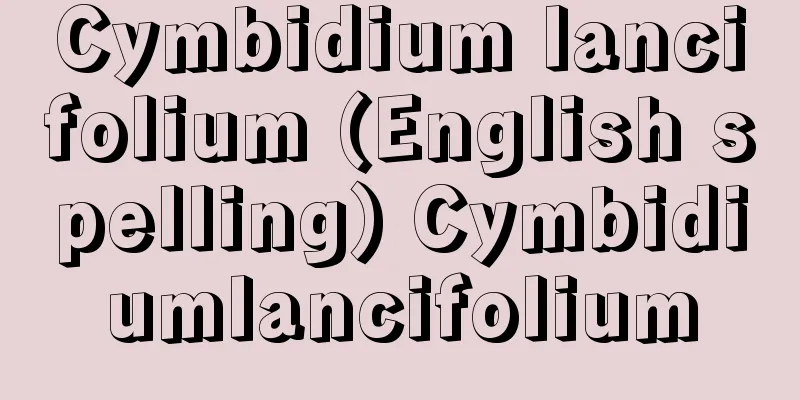Direct Duty - Jikimu

|
This refers to the direct execution of manorial duties (collection of taxes and official duties, inspection, agricultural promotion, inspection, etc.) performed by manor lords in the late Middle Ages. In the Middle Ages, manor lords, such as powerful temples and shrines, generally entrusted or contracted their manorial duties to local manor officials, jito, and deputies (jitouke, shugouke, daikanuke). However, from the end of the 13th century onwards, as the number of village unions between manors grew and the manor officials and jito and others began to establish ukesho and shitajichubun, failure to pay taxes and official duties and reductions continued, and disputes between the jito and manor officials became frequent. In the Kinai region and surrounding areas, powerful temples and shrines sometimes sought to directly seize manorial duties again with the help of the shogunate and the Imperial Court. The forms of this system include (1) the manor lord himself goes down to the local area and literally manages the manor's affairs directly (Hine-no-sho, Izumi Province), (2) the contracted magistrates of the shugo side are eliminated due to strong demands from the manors, and the direct magistrates of the ryoke side govern the area (Niimi-no-sho, Bitchu Province), and (3) the lords and jito are eliminated, and the ryoke directly manages the area, recruiting shomu magistrates to carry out shomu (collection of taxes) (Tarumi-no-sho, Settsu Province). The above three forms transitioned between each other, but (3) was the most common. However, these forms did not last forever, with a few exceptions, and were absorbed into the daimyo domain system. [Jiro Shimada] "The World of Manors" edited by Yasuhiko Inagaki (1973, University of Tokyo Press) " "Tanuma Mutsumi, "One or Two Perspectives on the Study of Manors in the Muromachi Period" (included in "Ancient and Medieval Society and Folk Culture" edited by the Editorial Committee for the Collection of Essays Commemorating the 60th Birthday of Professor Taro Wakamori, 1976, Kobundo)" Source: Shogakukan Encyclopedia Nipponica About Encyclopedia Nipponica Information | Legend |
|
中世末期に荘園領主が行った荘務(年貢・公事(くじ)の収納、検注(けんちゅう)・勧農(かんのう)・検断(けんだん)等の荘園管理)権の直接執行のこと。権門(けんもん)寺社などの中世の荘園領主はその荘務を、在地の荘官・地頭・代官に任せたり、請け負わせるのが一般的であった(地頭請、守護請、代官請)。しかし、13世紀末以降、荘民らの村落結合の成長や、荘官地頭らによる請所(うけしょ)・下地中分(したじちゅうぶん)が進行し、年貢・公事の未進・減納が続き、地頭や荘官らとの間に相論(そうろん)が頻発するようになると、畿内(きない)やその周辺地域では、幕府や朝廷の力を借りて、権門寺社が改めてその荘務権の直接掌握に乗り出すことがあった。その形態には、(1)荘園領主自身が現地に下向し、文字どおり直接荘務を行う(和泉国(いずみのくに)日根荘(ひねのしょう))、(2)荘民らの強い要求によって守護方の請負代官を排除し、領家(りょうけ)方の直務代官が在地支配を行う(備中国(びっちゅうのくに)新見荘(にいみのしょう))、(3)下司(げし)・地頭らを排除して領家の直務とし、所務代官を募って所務(年貢の収納)を行わせる(摂津国垂水荘(たるみのしょう))などがある。以上の3形態は相互に移行するが、(3)が一般的である。しかしこうした形態は、一部を除けば永続せず、大名領国制のなかに吸収された。 [島田次郎] 『稲垣泰彦編『荘園の世界』(1973・東京大学出版会)』▽『田沼睦著「室町期荘園研究の一、二の視点」(和歌森太郎先生還暦記念論文集編集委員会編『古代・中世の社会と民俗文化』所収・1976・弘文堂)』 出典 小学館 日本大百科全書(ニッポニカ)日本大百科全書(ニッポニカ)について 情報 | 凡例 |
Recommend
Parrot echo, literary and martial arts - Parrot echo, literary and martial arts
Yellow cover. 3 volumes. Written by Koikawa Haruma...
Cubomedusae
… They are divided into the subclass Scyphostomid...
Ikeda [city] - Ikeda
A city in the northern part of Osaka Prefecture. I...
Sow thistle
...The pappus is sometimes used as cotton for ver...
Tunicate - Tunicate
A general term for marine invertebrates that have...
Ujimune - Uji no Sou
...the head of a clan in ancient Japan. Also call...
Shower (English spelling)
A phenomenon in which high-energy cosmic ray parti...
Iris pumila (English spelling) Irispumila
…[Hiroshi Aramata]. … *Some of the terminology th...
Kwakiutl people - Kwakiutl (English spelling)
A tribe of Native Americans living in the Queen Ch...
metallic pigmented paint
…The British Standards (BS) call it metallic pain...
Debs - Eugene Victor Debs
1855‐1926 A leader of the American labor and socia...
Ambulia sessiliflora - Ambulia sessiliflora
A perennial aquatic plant of the Scrophulariaceae ...
Mr. Haga
A medieval samurai family in Shimotsuke. They call...
Giant black jay - Ookurogwai
A perennial plant of the Cyperaceae family (APG c...
Sea ant - Sea ant
...Although a considerable population did gather ...









![Hojo [town] - Hojo](/upload/images/67ccd3761673e.webp)